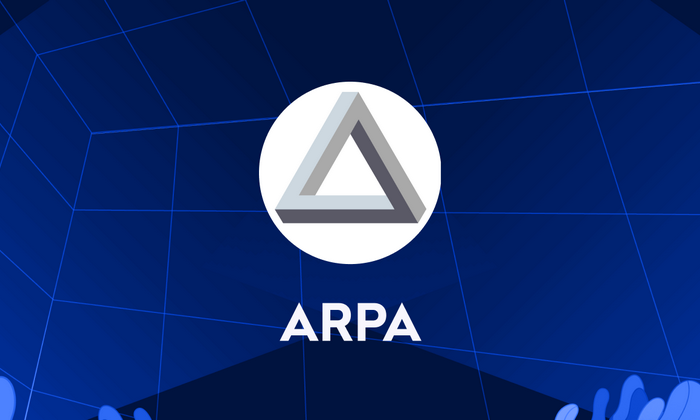-
 Bitcoin
Bitcoin $84,993.8786
0.34% -
 Ethereum
Ethereum $1,599.9353
1.27% -
 Tether USDt
Tether USDt $0.9999
-0.01% -
 XRP
XRP $2.0813
0.78% -
 BNB
BNB $592.4105
0.82% -
 Solana
Solana $138.1937
3.17% -
 USDC
USDC $1.0000
0.00% -
 Dogecoin
Dogecoin $0.1589
2.71% -
 TRON
TRON $0.2413
-1.55% -
 Cardano
Cardano $0.6307
2.60% -
 UNUS SED LEO
UNUS SED LEO $9.3881
1.71% -
 Chainlink
Chainlink $12.8366
1.65% -
 Avalanche
Avalanche $19.2740
1.26% -
 Stellar
Stellar $0.2445
1.24% -
 Toncoin
Toncoin $2.9868
-0.07% -
 Shiba Inu
Shiba Inu $0.0...01221
3.10% -
 Hedera
Hedera $0.1669
0.87% -
 Sui
Sui $2.1351
1.39% -
 Bitcoin Cash
Bitcoin Cash $336.8750
2.70% -
 Hyperliquid
Hyperliquid $18.0804
6.57% -
 Polkadot
Polkadot $3.7246
1.15% -
 Litecoin
Litecoin $76.4144
1.52% -
 Dai
Dai $0.9999
0.00% -
 Bitget Token
Bitget Token $4.4597
2.23% -
 Ethena USDe
Ethena USDe $0.9992
0.00% -
 Pi
Pi $0.6437
5.71% -
 Monero
Monero $212.9449
-1.50% -
 Uniswap
Uniswap $5.2448
1.29% -
 Pepe
Pepe $0.0...07289
2.88% -
 OKB
OKB $50.8316
2.01%
What currency does ARPA coin belong to?
ARPA Coin, due to its primary utility within the decentralized ARPA Network and limited supply, can be classified as a utility token within the crypto currency ecosystem.
Nov 28, 2024 at 07:52 pm

Understanding the Currency Classification of ARPA Coin
ARPA Coin, the native token of the ARPA Network, is a cryptocurrency that plays a crucial role in powering the decentralized, privacy-preserving computation platform. Its utility extends beyond transactional purposes, encompassing essential functions within the ARPA ecosystem. However, categorizing ARPA Coin's currency type requires a comprehensive analysis of its characteristics and intended use cases.
1. Understanding the Concept of Currency
Currency serves as a medium of exchange, facilitating transactions for goods and services. It possesses a store of value, enabling individuals to preserve purchasing power over time. Additionally, currency acts as a unit of account, providing a common benchmark for comparing the values of different goods and services.
2. Classifying ARPA Coin based on Monetary Functions
a. Medium of Exchange
ARPA Coin is primarily utilized within the ARPA Network to facilitate transactions for various services. These services include decentralized computation, data storage, and retrieval. However, its usage as a medium of exchange is currently limited to the ARPA ecosystem.
b. Store of Value
ARPA Coin's price fluctuates based on supply and demand dynamics. While it may exhibit value preservation properties, its viability as a long-term store of value remains subject to market conditions and the success of the ARPA Network.
c. Unit of Account
ARPA Coin is not commonly used as a unit of account outside the ARPA Network. Its value is primarily expressed in relation to other cryptocurrencies or fiat currencies.
3. Evaluating ARPA Coin's Currency Characteristics
a. Decentralization
ARPA Coin operates on a decentralized blockchain, ensuring that no single entity has control over its issuance or supply. This aligns with the ethos of cryptocurrencies, promoting transparency and censorship resistance.
b. Limited Supply
ARPA Coin has a maximum supply of 1 billion tokens, ensuring its scarcity and potential value appreciation. The limited supply also contributes to its potential as a store of value.
c. Utility
ARPA Coin is not merely a speculative asset. It serves a vital utility within the ARPA Network, powering transactions, incentivizing participants, and securing the network. This utility enhances its value proposition beyond its speculative appeal.
4. Classifying ARPA Coin within Crypto Currency Ecosystem
Given its characteristics and intended use cases, ARPA Coin can be classified as a utility token. Utility tokens are cryptocurrencies that provide access to specific goods, services, or functionalities within a particular platform or ecosystem. In the case of ARPA Coin, its utility stems from powering the ARPA Network's decentralized computation services.
5. Additional Considerations in Currency Classification
a. Regulatory Considerations
The regulatory landscape for cryptocurrencies is evolving, and the classification of ARPA Coin may vary depending on the jurisdiction. It is essential to stay informed about regulatory developments and seek legal advice when necessary.
b. Market Perception
The market's perception of ARPA Coin can influence its currency classification. If the market predominantly views ARPA Coin as a store of value, its price fluctuations may align more closely with traditional currencies.
Conclusion
ARPA Coin's currency classification is a multifaceted issue that requires an analysis of its characteristics, utility, and market perception. While primarily a utility token powering the ARPA Network, its potential as a store of value and its decentralized nature warrant further consideration. The evolving regulatory landscape and market dynamics will continue to shape the classification of ARPA Coin and other cryptocurrencies.
Disclaimer:info@kdj.com
The information provided is not trading advice. kdj.com does not assume any responsibility for any investments made based on the information provided in this article. Cryptocurrencies are highly volatile and it is highly recommended that you invest with caution after thorough research!
If you believe that the content used on this website infringes your copyright, please contact us immediately (info@kdj.com) and we will delete it promptly.
- Codename:Pepe dips 30% from March highs, sparking investor interest in Codename:Pepe's AI-powered alternative.
- 2025-04-19 14:20:14
- Despite Its Elevated Position as the World's Premier Meme Coin, Dogecoin (DOGE) Has Been Struggling
- 2025-04-19 14:20:13
- Market Update: Crypto Market Remains Steady at $2.79 Trillion with Minimal 0.14% Growth
- 2025-04-19 14:15:13
- Can Mantra (OM) Bounce Back? How High Can the Price Go After 90% Crash?
- 2025-04-19 14:15:13
- President Donald Trump Said at a 2024 Campaign Event That He Wanted All Remaining Bitcoin
- 2025-04-19 14:10:13
- Qubetics ($TICS): The New Frontier in Blockchain Interoperability
- 2025-04-19 14:10:13
Related knowledge

Will the Bitcoin payment platform affect the payment business of traditional banks?
Apr 19,2025 at 09:56am
The emergence of Bitcoin and other cryptocurrencies has sparked a significant debate about their impact on the traditional financial sector, particularly on the payment business of banks. The Bitcoin payment platform, with its decentralized nature and promise of lower transaction fees, poses both a challenge and an opportunity for traditional banks. Thi...

How to avoid address input errors when using Bitcoin payment platforms?
Apr 19,2025 at 02:15am
When using Bitcoin payment platforms, avoiding address input errors is crucial to ensure your transactions are secure and reach the intended recipient. Address input errors can lead to loss of funds, as Bitcoin transactions are irreversible. This article will guide you through various methods and best practices to prevent such mistakes. Understanding Bi...

What are the advantages of Bitcoin payment platforms in cross-border transactions?
Apr 19,2025 at 01:35pm
Bitcoin payment platforms have emerged as a revolutionary tool for cross-border transactions, offering numerous advantages that traditional banking systems struggle to match. In this article, we will explore the key benefits of using Bitcoin payment platforms for international payments, focusing on speed, cost, accessibility, security, and transparency....

Why are more and more merchants accepting Bitcoin payments?
Apr 19,2025 at 12:29pm
The increasing acceptance of Bitcoin as a payment method by merchants is a notable trend within the cryptocurrency circle. This shift is driven by several key factors that make Bitcoin an attractive option for businesses. Understanding these factors can provide insights into the growing acceptance of Bitcoin payments. Benefits of Lower Transaction FeesO...

How to avoid slippage in SOL transactions?
Apr 19,2025 at 12:15pm
Slippage in cryptocurrency transactions, particularly in Solana (SOL) transactions, refers to the difference between the expected price of a trade and the price at which the trade is actually executed. Slippage can occur due to various factors such as market volatility, liquidity, and the size of the transaction. For traders and investors dealing with S...

How to buy SOL with USDT?
Apr 19,2025 at 03:49am
Introduction to Buying SOL with USDTPurchasing SOL, the native cryptocurrency of the Solana blockchain, using USDT (Tether), a stablecoin pegged to the US dollar, is a common transaction within the cryptocurrency market. This process involves several steps, including choosing a suitable exchange, transferring USDT, and executing the trade. In this artic...

Will the Bitcoin payment platform affect the payment business of traditional banks?
Apr 19,2025 at 09:56am
The emergence of Bitcoin and other cryptocurrencies has sparked a significant debate about their impact on the traditional financial sector, particularly on the payment business of banks. The Bitcoin payment platform, with its decentralized nature and promise of lower transaction fees, poses both a challenge and an opportunity for traditional banks. Thi...

How to avoid address input errors when using Bitcoin payment platforms?
Apr 19,2025 at 02:15am
When using Bitcoin payment platforms, avoiding address input errors is crucial to ensure your transactions are secure and reach the intended recipient. Address input errors can lead to loss of funds, as Bitcoin transactions are irreversible. This article will guide you through various methods and best practices to prevent such mistakes. Understanding Bi...

What are the advantages of Bitcoin payment platforms in cross-border transactions?
Apr 19,2025 at 01:35pm
Bitcoin payment platforms have emerged as a revolutionary tool for cross-border transactions, offering numerous advantages that traditional banking systems struggle to match. In this article, we will explore the key benefits of using Bitcoin payment platforms for international payments, focusing on speed, cost, accessibility, security, and transparency....

Why are more and more merchants accepting Bitcoin payments?
Apr 19,2025 at 12:29pm
The increasing acceptance of Bitcoin as a payment method by merchants is a notable trend within the cryptocurrency circle. This shift is driven by several key factors that make Bitcoin an attractive option for businesses. Understanding these factors can provide insights into the growing acceptance of Bitcoin payments. Benefits of Lower Transaction FeesO...

How to avoid slippage in SOL transactions?
Apr 19,2025 at 12:15pm
Slippage in cryptocurrency transactions, particularly in Solana (SOL) transactions, refers to the difference between the expected price of a trade and the price at which the trade is actually executed. Slippage can occur due to various factors such as market volatility, liquidity, and the size of the transaction. For traders and investors dealing with S...

How to buy SOL with USDT?
Apr 19,2025 at 03:49am
Introduction to Buying SOL with USDTPurchasing SOL, the native cryptocurrency of the Solana blockchain, using USDT (Tether), a stablecoin pegged to the US dollar, is a common transaction within the cryptocurrency market. This process involves several steps, including choosing a suitable exchange, transferring USDT, and executing the trade. In this artic...
See all articles
























































































